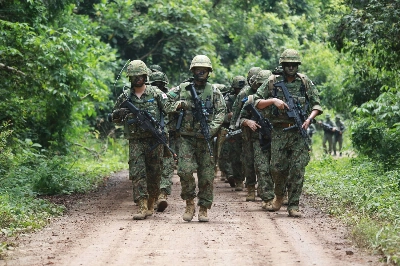Turkey occupies a critical geographical position in the fight against the Islamic State extremist group. Its proximity to Syria means that its airfields are the most convenient to launch airstrikes against the militants. Just as important, however, is the long border with Syria and Iraq: Many if not most of the individuals seeking to join Islamic State radicals cross the border to enter the battlefield.
Until last week, Turkey had refused to allow the use of its airfields for attacks in Syria, seeking instead the end of the Bashar Assad government in Damascus. Using the logic of "the enemy of my enemy is my friend," the Islamic State group has been an ally in that struggle.
The Ankara government has also been cautious because the chief obstacle to Islamic State's advance has been Kurdish forces in Iraq and Turkey fears that the stronger those forces grow, the greater the risk that they will join with Kurds in Turkey to challenge Ankara's authority and carve out a homeland.

















With your current subscription plan you can comment on stories. However, before writing your first comment, please create a display name in the Profile section of your subscriber account page.